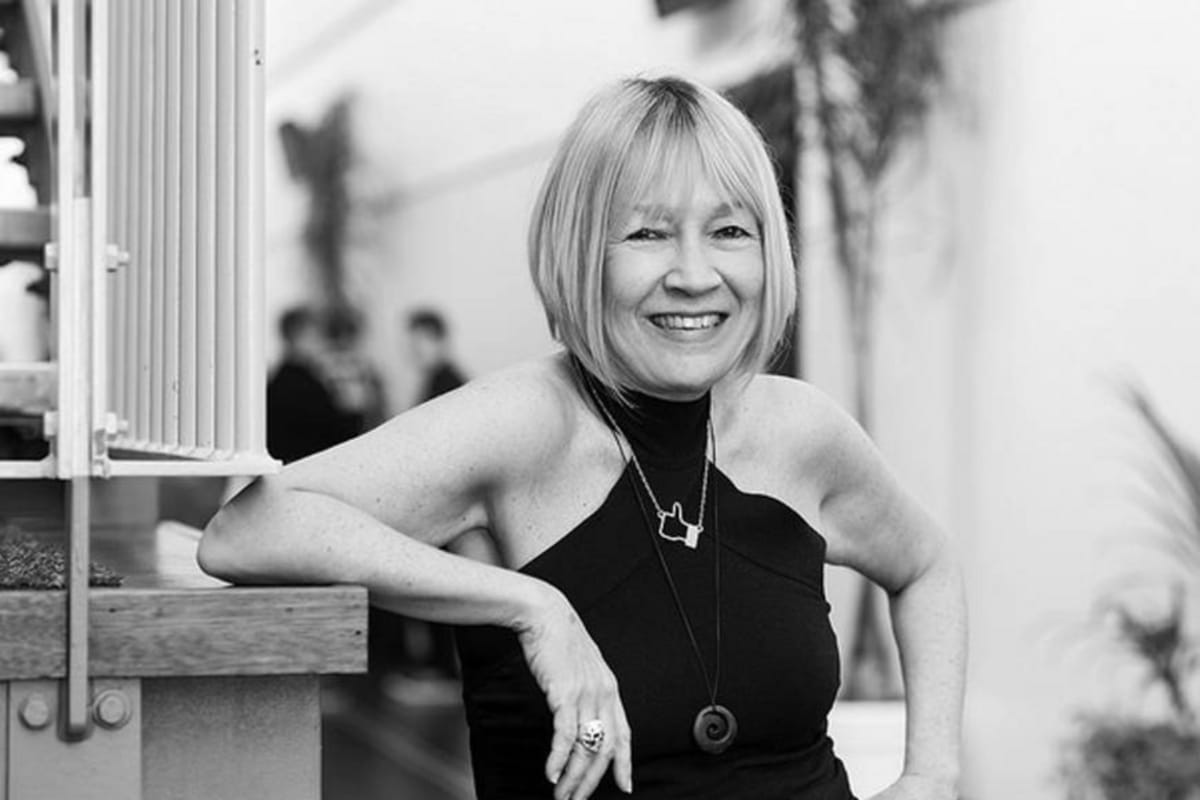- Magazine Dirt
- Posts
- The future of adtech
The future of adtech
Leading with the heart.

Cindy Gallop
Daisy Alioto in conversation with Cindy Gallop.
I first heard of Cindy Gallop’s work through her 2009 TED Talk. I was in college at the time, and just starting to become aware of the dynamics she was describing around pornography and sex. Make Love Not Porn was a manifesto and education tool that became its own streaming platform for real couples having real sex. Later, I learned about Gallop’s long career in the advertising industry, including as the president of the New York arm of Bartle Bogle Hegarty (BBH).
When we crossed paths at a gathering earlier this spring, I was still rolling my eyes at the investment fund that told me they weren’t sure if advertisers would care about the things readers were collecting online, and here on this rooftop was Cindy Gallop–a woman who understands the future of advertising because she understands the past. The “Michael Bay of business.” A kindred spirit!
Gallop’s current venture ‘Here For The Ads’ is based on a “sale not scale” model in which advertisers apply for the platform and there is no ban against certain categories of content (like bespoke porn streamers or period products). Curators will decide whether the ad meets the platform’s criteria: ads people actually want to watch. Every ad will be shareable to drive conversation in the same way Netflix and Hulu build buzz around individual units of video entertainment.
I caught up with Gallop to discuss luxury advertising experiences, sexual consent and more. — Daisy Alioto
Daisy Alioto: ‘Here For The Ads’ is fundamentally about making ads that people want to watch. What are the core principles that make an ad watchable?
CG: I started in the advertising industry in London in 1985, and the UK has a culture that is enormously interested in advertising and expects it to entertain them. And I remember when I was working in advertising in London in the eighties, I'd say to my friends, and my friends would say to me, "If we’re going to go to the movies, we've got to get to the movie theater early in time for the ads." And those of us making the ad knew they had to be just as entertaining as the movie.
At Bartle Bogle Hegarty (BBH), one of our evaluation criteria for doing great work was, is this ad so good that people would pay to watch it? And actually at BBH, we made ads that people would've paid to watch like our very famous Levi's campaign. We live in an era now where a lot of brand marketers and agencies have lost sight of the fact that first and foremost, when you really entertain and compel people, that's when you pull them in and can make the emotional connection with them that gets your commercial message absorbed.

Image Credit: BBH
Our creative philosophy at BBH was, "We don't sell, we make people want to buy." And today there are way too many ads that are selling, but not making people want to buy. And so in the ad tech that I want to build, I've really rolled up all of my own philosophies of advertising, including the fact that we should make people want to see the ads so much that they are destination viewing. Which is why, by the way, I've called it Here For The Ads.
DA: Your platform will be curated. In my opinion, the acceleration of AI has actually elevated the value of human curation. But I am curious whether you see any possible applications of AI to your adtech vision?
CG: I actually see an enormous application of AI to Make Love Not Porn. I designed Make Love Not Porn to be the Kinsey of today. Real-world, real-time, real-life human sexual behavior aggregated in a way that nobody else is doing. People don’t want to fund the Comscore of sex. But in this era of research and data, sex has the widest gap between what people say and what people actually do. And we are all about what people actually do. So there’s an opportunity in our unique pool of real-world sex video content to use AI to identify an algorithm for consent.
Because we have all of the visual material required to demonstrate what is great consensual sex in the real world. And the applicability of that is tremendous because again, as we all know, many of the sex scenes in Hollywood movies and TV series are theoretically consensual. But what you see absolutely does not suggest and promote consent. I mean, penetration happens within seconds, zero foreplay, zero asking for permission of anything, zero checking in on anybody, assumption of simultaneous orgasm…etc. And so there's an opportunity to use an algorithm for consent to be able to run movie scripts and scenes and so on to make sure it really is consensual. There's an application in criminal court. I mean, don't even get me started on how much sexual assault cases are imbalanced in favor of victim blaming. So I see enormous applicability there and I'm very interested in exploring that.
In terms of advertising, I think the industry absolutely should be worried in a world of generative AI because it is possible to generate ads the same way people generate everything else. But for the best ads, you still need an understanding of what will resonate within somebody's heart.
DA: As we're talking about curation, it feels like we're also talking about luxury advertising for categories that have traditionally been non-luxury, the idea that you can have a luxury advertising experience for products that aren't high margin. When you're talking about the eighties in London and watching ads in the movie theater, the assumption was even an ad for a soda pop is going to be high quality.
But I do feel like we've moved away from that a little bit. It feels like a return to ad display being a luxurious experience no matter what the core product is, and web3 can be part of that.
CG: Absolutely. Everything should be a fabulous experience, whatever it is that you're selling. Because speaking as somebody from the advertising industry, it's been crystal clear in Web2 and in the male side of Web3 that we absolutely know when people despise advertising and marketing and only want it because it's a revenue stream. I've been saying to women for years, we are the business model for the internet. And we should understand the power we have and exert it. But we are looking for different approaches. We are looking for advertising opportunities that respect us, that create extraordinary experiences around them.
Obviously, I want to build my own adtech, but I've been exhorting women for years, build female lens adtech, because we're the primary consumers of everything. We're the primary purchaser of everything. We're the primary influencers of purchase. We know how to sell to ourselves, and we can invent advertising models that bring us a shit ton of money when we think about doing it through the female lens in a completely different way. So I just want to very much encourage the women of Web3, reinvent business models and reinvent advertising, and reinvent ways to generate revenue because the field is wide open to do that.